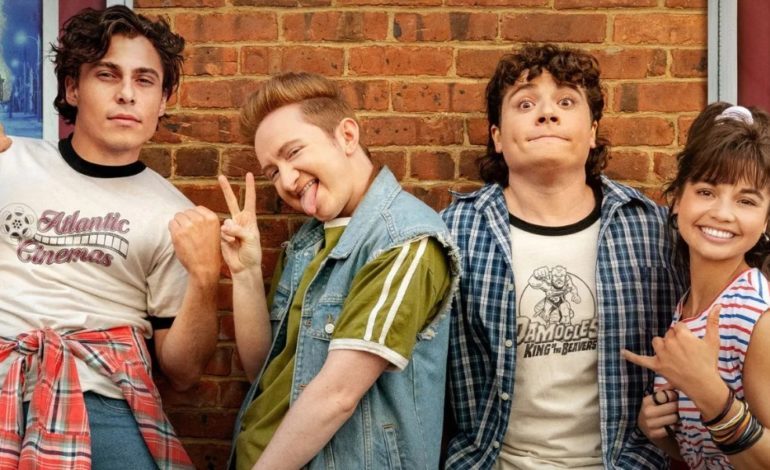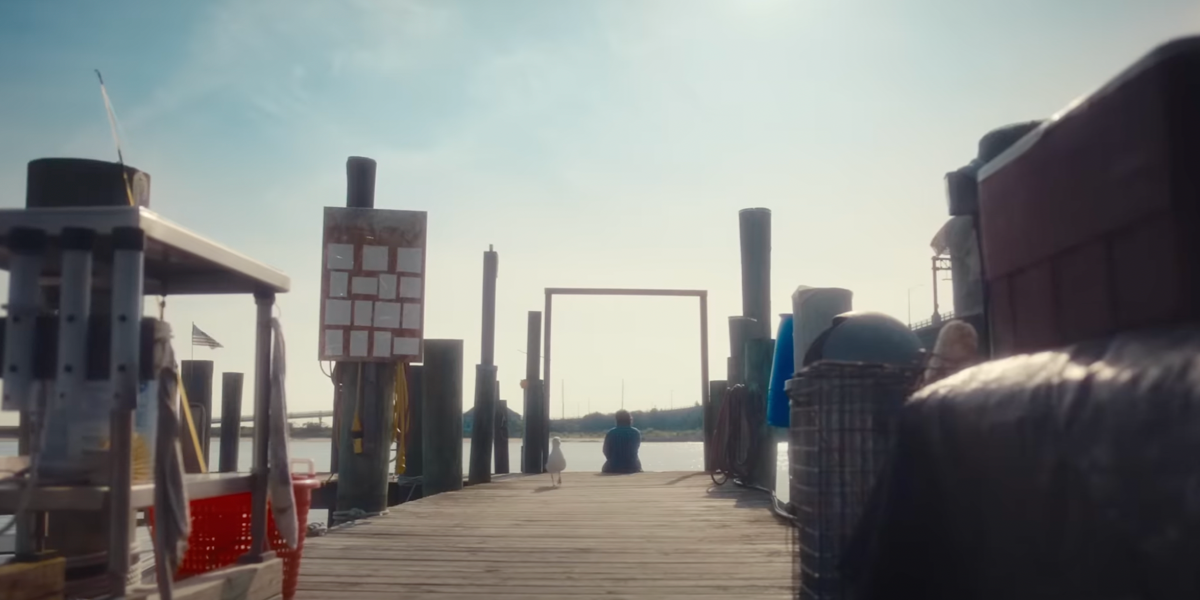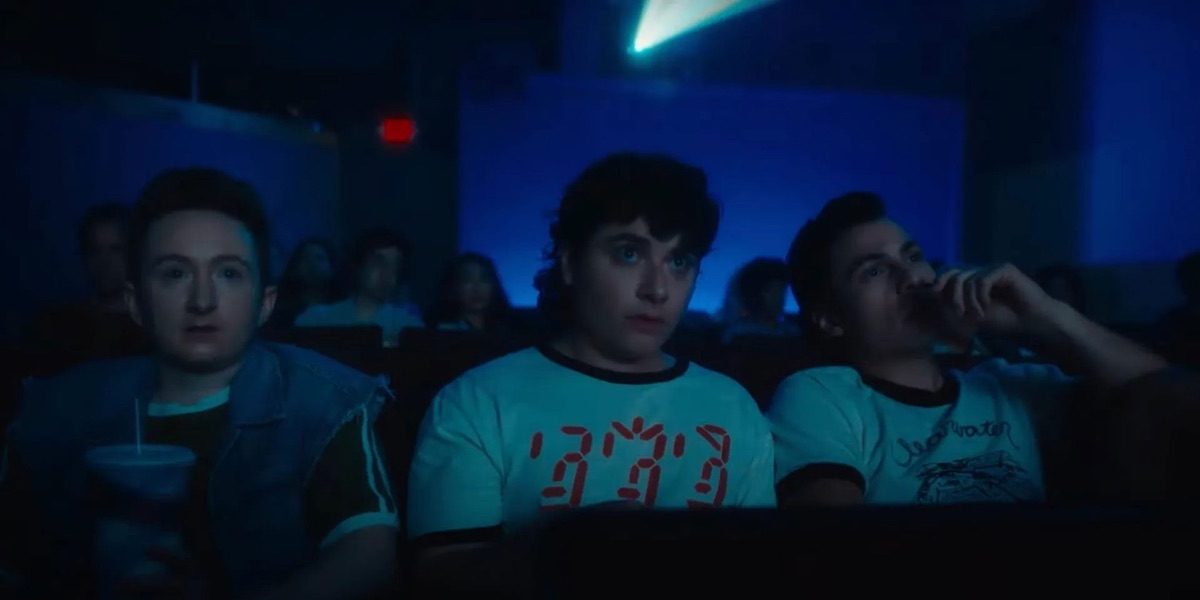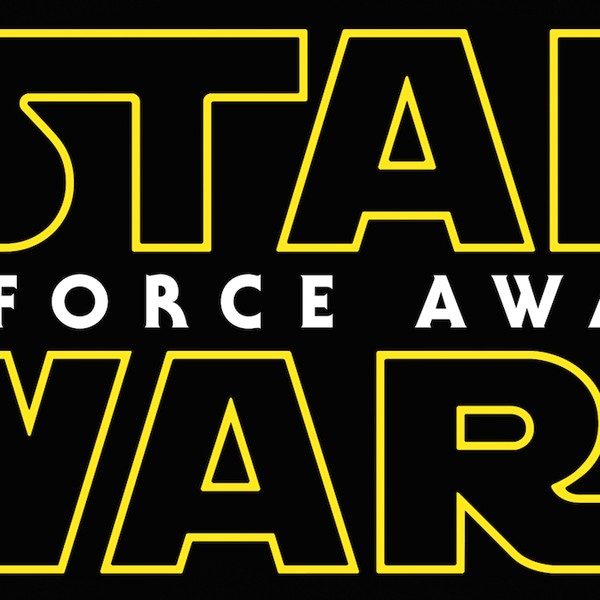

Kevin Smith has had some serious mountain peaks and desert valleys in his career. While his movies aren’t for everyone, you can’t argue that his early View Askewniverse films—which arguably created the roadmap for the MCU to follow—carry a certain energy and personal touch that, almost to a fault, makes them feel uniquely all his own. So much so that post-Clerks II—a sequel that’s both totally unnecessary and also way better than it has any right to be, regardless of the low score on Rotten Tomatoes—he’s never been able to recapture that same spark that made his early films feel so special. Part of that is because he’s taken some legitimate swings, making horror films like Red State and Tusk, which may not work for everyone but still feel like honest attempts to try something weird and different. The other thing is that in the last few years, between Jay and Silent Bob: Reboot and Clerks III, his projects seem to represent a desire to call back to his early films rather than build off them.
Back in his review of Avengers: Endgame, he commented, “The only movie that I’ve seen with this much fan service treatment is the movie I just finished making, Jay and Silent Bob: Reboot…which, I’m not going to say, ‘It’s the Avengers of my movies,’ but I took so much care to be like, ‘Oh my God if you like this, I’m going to reference this.’” That mindset seems to be at the forefront of his recent movies, and unfortunately, when it comes to something as recent as Clerks III, it’s often to the detriment of the film as a whole. For a while, it seemed like the magic that made his early films so special was eviscerated…and then came The 4:30 Movie.


You may have missed it, but back in September, Smith released his semi-autobiographical teen comedy, The 4:30 Movie. It follows a teenager named Brian David (Austin Zajur) who, after asking out his crush Melody Barnegat (Siena Agudong) to a movie date later in the day—you can guess what the showtime is—he spends the afternoon hanging out with his friends Burny (Nicholas Cirillo) and Belly (Reed Northup) at the local movie theater, causing shenanigans and talking about movies and girls—but mainly Melody Barnegat. All the while eagerly awaiting the 4:30 showtime and what might as well be destiny.
In theory, that sounds like a low-stakes concept to fill up a feature-length runtime, but for a pseudo-spiritual follow-up to the View Askew films, it feels right in line as a natural progression from the earlier entries in the series. Before Dogma, Smith’s films felt more like ‘Hangout movies’. They’re not narrative-driven as much as they’re a window into the lives of the characters he creates. The films aren’t devoid of plot, but what little story they have often feels more like a framework as a means to be with these characters. Hence the term, ‘Hangout Movie’. Clerks was just about experiencing Dante’s workday with the bizarre people he has to contend with; Mallrats doesn’t have much going on until Brodie and T.S. get detained by LaFours. And Chasing Amy is effectively two 45-minute-long stories combined at precisely the halfway point.
That lack of story but focus on character makes a return here because while most of the film is just Brian hanging out with his friends at the movies, the characters are so well-defined and fun that it works. The best scene in the entire film is the three of them watching trailers for fake movies. It’s utterly pointless in the grand scheme of things, but it’s so great how it depicts what it’s like to see a movie with your friends and commenting about whether the trailers look good or not that it makes it feel so authentic.


Speaking of transitions between discussion topics, the film once again proves that Smith is shockingly good at end-of-second-act blowups. It doesn’t get brought up often in discussion, especially when your friends aren’t as big Kevin Smith fans as you are and are otherwise unable or unwilling to nod along to pretend they’re listening (any and all real-life counterparts to this statement are purely coincidental). Still, you could do a fan edit of all the arguments between lead characters Smith has written in his movies, and the consistent level of consistency is very…consistent. There was probably a better way to word that sentence, but that was thirteen words ago, and backspacing is for people who live in the past. There are moments like Randall shutting down Dante like a circuit breaker in Clerks, the jail cell scene in Clerks II, the “I hate you right back” moment from Jersey Girl—a good movie, despite your opinions on the matter—Bartleby turning heel in a parking structure in Dogma, and both the intersection and yearbook scenes in Chasing Amy with Banky yelling at Holden about Alyssa—no matter what society would have you believe, that movie is just two smaller movies surgically spliced together like reverse conjoined twins.
Maybe it’s just down to personal preference, but even though Smith’s comedy sometimes lands like a bare foot on a Lego block, his dramatic moments, for whatever reason, almost always hit the mark dead on. He doesn’t get enough credit for how good he is at building chemistry between characters and dropping bits of tension and animosity between them, so by the time they’re butting heads, it doesn’t feel forced and is pretty gratifying to behold. Even Clerks III, despite its flaws, has a cutting exchange between Dante and Randall about the latter’s near-death experience, which is nearly on par with the jail cell scene in Clerks II.
Smith shows off his mad skills here with an argument between Brian being angry at Burny for constantly insulting Melody, and Burny secretly being insecure that Brian won’t look up to him anymore if he has a girlfriend. They also address Brian’s self-consciousness about Burny (and everyone else) making fun of him for being short, which clearly stems from Kevin Smith’s childhood insecurities about his weight. Even Belly manages to bring some Silent Bob-level wisdom into the proceedings and tells the two of them to get over themselves while also continuing Smith’s inexplicable trend of teenagers having a friend with a gross mullet ponytail—here’s looking at you, Nicholas Braun in Red State. He also acts as the rare third member of a trio, as opposed to Smith’s usual duos (Dante and Randall, Holden and Banky, Brody and T.S., Bartleby and Loki).


Something else charming about the movie is the way in which Brian got the date. It has a bit of Say Anything going on where there’s no gimmick or meet-cute to put the romance in motion. Brian has a crush on Melody Barnegat—who always gets referred to by her full name, which feels like a nod to Diane Court—so after a year of waiting, he finally builds up the courage to call her up and ask her out, and it sets the entire movie in motion. The Say Anything parallels could be potentially unintentional, but if you know anything about SModcast and the character Emo Kev, you know Say Anything means a lot to Kevin Smith, so it wouldn’t be totally out of the realm of possibility.
There’s also an obvious bit of wish fulfillment where Brian’s movie knowledge is what cements Melody’s interest in him. It’s not just that she likes him; she mentions explicitly on several occasions how enthralled she is by his movie knowledge, and it makes her think he’s super cool and incredibly interesting, and uh…yeah, hold on. What’s your opinion on that, special guest inquirer and frequent Kevin Smith collaborator Jason Lee? [Pause] Yeah, he said that’s never happened to anyone ever. He also wanted to make mention how the sweet is never as sweet without the sour…and he knows the sour. Whatever that means.
[Writer’s Note: If that deep-cut line of dialogue from Vanilla Sky didn’t make you hot under the collar, you’re proving the legitimacy of the point that’s been made.]
The film is by no means flawless; there are a couple of groaner moments, often revolving around characters saying something empirically about movie trends, and it’s ironic because the opposite ends up being true. Things like how post-credit scenes will never be a thing and how ridiculous it would be if Star Wars kept going after Return of the Jedi, even going so far as to make shows for minor characters. You see, it’s because they live in the back-then era and don’t know any better, but we live in the right-now time, and we know they’re wrong, which makes it funny (in concept). Honestly, though, the cringe-worthy moments are surprisingly few and far between, and the funny and likable moments far outweigh the unintentionally hair-raising ones. Minus some topical references, this feels like a script that Smith wrote years ago—between 2001 and 2006—that sat in a drawer with a layer of dust on it, and he just took it out and made it as is. The characters and general concept feel like they would fit comfortably in the View Askewniverse, and similar to how Chasing Amy was a more dramatic love story as a reaction to the reception of Mallrats (more specifically the response from critic Matt Zoller Seitz), this feels like a much sweeter tale than what you’d usually be privy to in a Kevin Smith movie. It shows that he still can make films that are funny and can resonate with his audience, and, much like Holden at the end of Chasing Amy, it shows he still has something personal to say.

